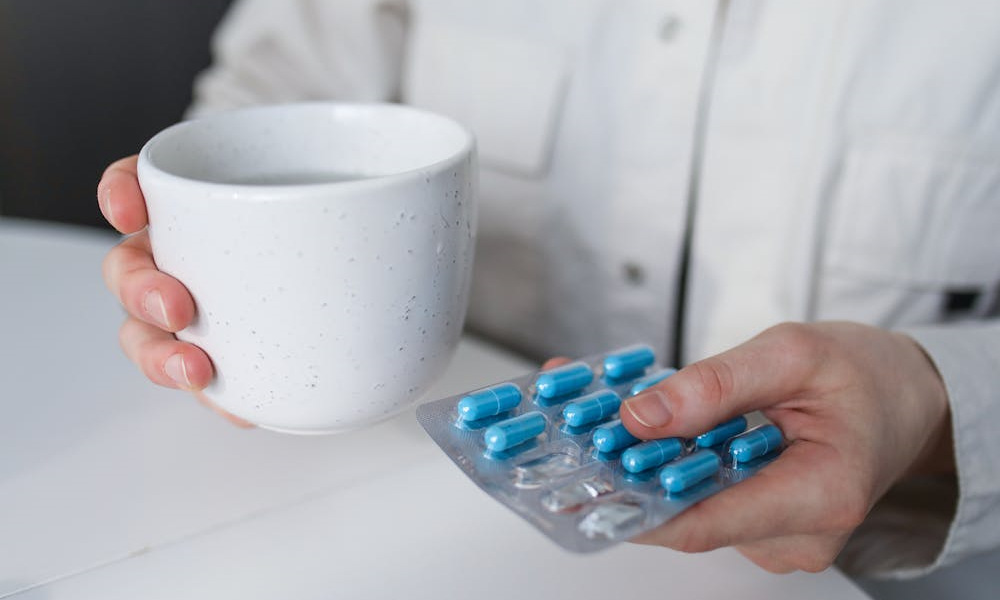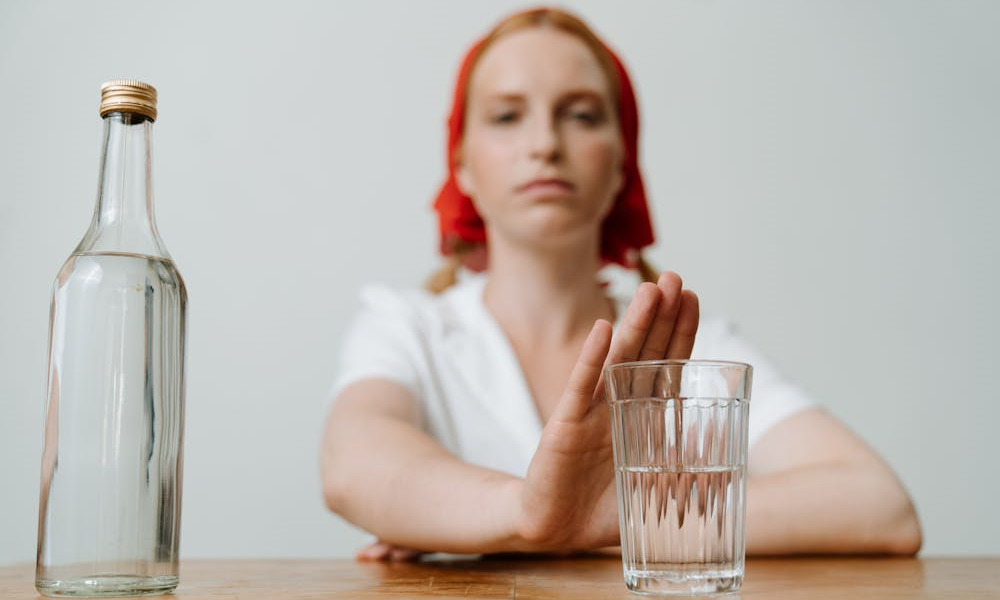Reviews
What Healthcare Providers Want You to Know About Mixing Alcohol With Medication

Mixing alcohol with medication can lead to serious health risks, whether you take prescription drugs or over-the-counter medicines. Alcohol may increase the effects of some medications, making you feel more impaired. In other cases, it can reduce the effectiveness of the medication. For some drugs, alcohol may cause harmful reactions that affect vital organs like the liver or heart. Many people don’t realize the risks until side effects occur. It’s essential to understand how alcohol interacts with your medications. This knowledge helps prevent serious health complications. Always check with your doctor before drinking alcohol while on medication. Staying informed can protect your health in the long run.
Key Medications Affected by Alcohol
Certain medications are highly sensitive to alcohol, and mixing them can cause harmful effects. Drugs like benzodiazepines, which treat anxiety and insomnia, can cause extreme sedation when combined with alcohol. That increases the risk of overdose, respiratory problems, or even death. Painkillers, such as opioids, also react poorly with alcohol, potentially leading to dangerous respiratory depression. Antidepressants, particularly selective serotonin reuptake inhibitors (SSRIs), can cause severe side effects like increased drowsiness or confusion when mixed with alcohol.Blood thinners, such as warfarin, can lose their effectiveness, raising the risk of dangerous blood clots. Even over-the-counter medications, like antihistamines, should not be combined with alcohol. They can cause dizziness, memory problems, and impaired motor function. Mixing alcohol with medication is never a good idea without consulting a doctor first. The risks include severe liver damage, heart complications, and nervous system impairment. It’s important to be aware of how your specific medications interact with alcohol and avoid mixing them whenever possible.

Guidelines for Safe Consumption
When taking prescription or over-the-counter medications, it’s essential to understand how alcohol can interfere with the treatment. Alcohol doesn’t just reduce the effectiveness of many medications—it can also amplify side effects like drowsiness, dizziness, or nausea, and it may even mask symptoms of underlying health conditions, making them harder to detect and treat. In some cases, even small amounts of alcohol can trigger harmful interactions, depending on the medication involved.
Always read medication labels carefully and consult your healthcare provider before consuming alcohol. While moderate intake—such as limiting yourself to one drink or less per occasion—may be safe for some, others may need to consider full or periodic abstinence to avoid complications.As a proactive, preventive strategy, committing to one month without alcohol can offer valuable insight into how your body functions without the added influence of alcohol. This intentional break can help you observe how your medications truly affect you and whether alcohol has been interfering with your treatment or overall health. By adopting this mindful approach, you’re taking an important step toward protecting your well-being and making more informed lifestyle choices.

The Role of Healthcare Providers in Education
Healthcare providers have a significant responsibility to educate patients about the risks of combining alcohol with medications. Doctors and pharmacists must make sure patients understand how alcohol can affect their prescribed drugs. This education is vital for preventing harmful side effects, especially when people are unaware of the potential dangers. Doctors often take the time to counsel patients on safe medication use, including whether drinking alcohol should be avoided. Pharmacists also play a role by advising on over-the-counter medications and their interaction with alcohol. They can provide helpful resources like pamphlets or trusted websites to educate patients further. Healthcare professionals frequently address this issue and ensure that patients know the risks.
In many cases, patients are given clear guidelines on what to do if they want to consume alcohol while on medication. Then again, patient education is an ongoing process, requiring regular updates as new information becomes available. Patients need to stay informed and follow healthcare guidance.
Tips for Talking to Your Doctor About Mixing Alcohol With Medication
Talking to your doctor about alcohol and medication is an important part of maintaining your health. Being open about your alcohol consumption can help your healthcare provider offer the best advice for safe medication use. It is important to ask questions about how alcohol might interact with your prescriptions. That helps ensure that your medications will be effective and safe. Before your visit, think about your drinking habits and how much alcohol you consume regularly. By discussing this openly, your doctor can provide clear guidelines on whether you should avoid alcohol altogether or if moderate drinking is acceptable.
Here are some questions you can ask your healthcare provider:
- How will alcohol affect my medications?
- Are there any side effects I should watch for if I drink?
- Is it safe for me to drink alcohol while on this medication?
- What should I do if I drink alcohol while taking this medication?
- Recognizing Symptoms of Interaction

Recognizing the symptoms of alcohol and medication interactions can prevent serious health issues. Common warning signs include dizziness, excessive drowsiness, confusion, and memory problems. If you experience any of these, taking immediate action is important. Stop drinking alcohol right away and contact your healthcare provider for advice. Sometimes, these symptoms may signal a severe reaction, requiring urgent medical attention. For example, severe headaches, nausea, or difficulty breathing can indicate a life-threatening situation, especially if combined with certain medications. According to the National Institute of Alcohol Abuse and Alcoholism, “alcohol plays a role in about 1 in 5 overdose deaths related to both prescription opioids (22.1%) and benzodiazepines (21.4%) each year.”
For this reason, it’s critical not to ignore any unusual symptoms. If symptoms worsen or you feel unwell, visit the nearest emergency room for further evaluation. Red flags to watch include changes in alertness, breathing problems, or extreme fatigue. You can avoid complications and protect your health by knowing these signs. Always err on the side of caution when mixing medications with alcohol. Prompt medical intervention can make all the difference in preventing serious harm.
Practical Advice for Safer Choices
Making safer choices regarding alcohol and medication is important for your health. One strategy is to consider alternative pain management methods, such as physical therapy, wellness practices, and non-alcoholic remedies, to reduce reliance on painkillers. Many people are unaware that non-prescription options, like certain herbal treatments, may interact with alcohol as well, so it’s important to discuss them with your healthcare provider. If you enjoy social drinking, try to set limits on how much you consume and avoid drinking if you are on medications known to interact negatively with alcohol.
Practicing moderation can help reduce the risk of harmful side effects. Similarly, making small lifestyle changes can improve your overall health and reduce the need for medication. Regular exercise, a balanced diet, and proper sleep can strengthen your body and make it easier to manage conditions without relying too heavily on drugs.
Conclusion
In conclusion, mixing alcohol with medication can lead to serious health risks. Understanding the potential interactions and recognizing symptoms is crucial for staying safe. Always talk to your doctor about alcohol use and follow their guidance. By being informed and making safer choices, you can protect your health and ensure the effectiveness of your treatments.

-

 World1 week ago
World1 week agoEthiopian volcano erupts for first time in thousands of years
-

 Health2 days ago
Health2 days ago8 kittens die of H5N1 bird flu in the Netherlands
-

 Legal7 days ago
Legal7 days agoUtah Amber Alert: Jessika Francisco abducted by sex offender in Ogden
-

 US News6 days ago
US News6 days agoExplosion destroys home in Oakland, Maine; at least 1 injured
-

 Health7 days ago
Health7 days agoMexico’s September human bird flu case confirmed as H5N2
-

 Legal3 days ago
Legal3 days ago15 people shot, 4 killed, at birthday party in Stockton, California
-

 World1 week ago
World1 week agoWoman killed, man seriously injured in shark attack on Australia’s NSW coast
-

 US News2 days ago
US News2 days agoFire breaks out at Raleigh Convention Center in North Carolina




